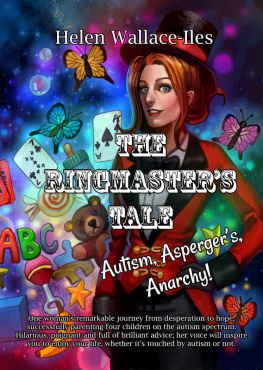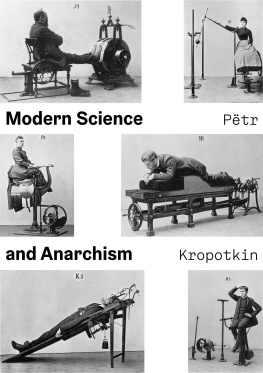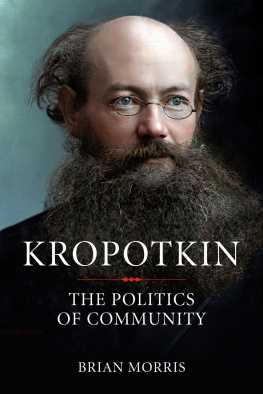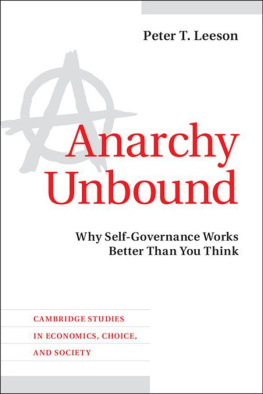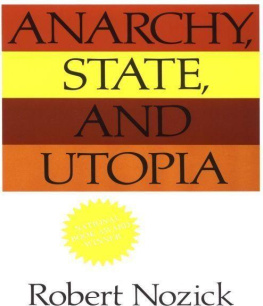Kropotkin Petr Alekseevich - Modern Science and Anarchy
Here you can read online Kropotkin Petr Alekseevich - Modern Science and Anarchy full text of the book (entire story) in english for free. Download pdf and epub, get meaning, cover and reviews about this ebook. City: Chico;CA, year: 2018, publisher: AK Press, genre: Politics. Description of the work, (preface) as well as reviews are available. Best literature library LitArk.com created for fans of good reading and offers a wide selection of genres:
Romance novel
Science fiction
Adventure
Detective
Science
History
Home and family
Prose
Art
Politics
Computer
Non-fiction
Religion
Business
Children
Humor
Choose a favorite category and find really read worthwhile books. Enjoy immersion in the world of imagination, feel the emotions of the characters or learn something new for yourself, make an fascinating discovery.

- Book:Modern Science and Anarchy
- Author:
- Publisher:AK Press
- Genre:
- Year:2018
- City:Chico;CA
- Rating:4 / 5
- Favourites:Add to favourites
- Your mark:
- 80
- 1
- 2
- 3
- 4
- 5
Modern Science and Anarchy: summary, description and annotation
We offer to read an annotation, description, summary or preface (depends on what the author of the book "Modern Science and Anarchy" wrote himself). If you haven't found the necessary information about the book — write in the comments, we will try to find it.
Modern Science and Anarchy — read online for free the complete book (whole text) full work
Below is the text of the book, divided by pages. System saving the place of the last page read, allows you to conveniently read the book "Modern Science and Anarchy" online for free, without having to search again every time where you left off. Put a bookmark, and you can go to the page where you finished reading at any time.
Font size:
Interval:
Bookmark:
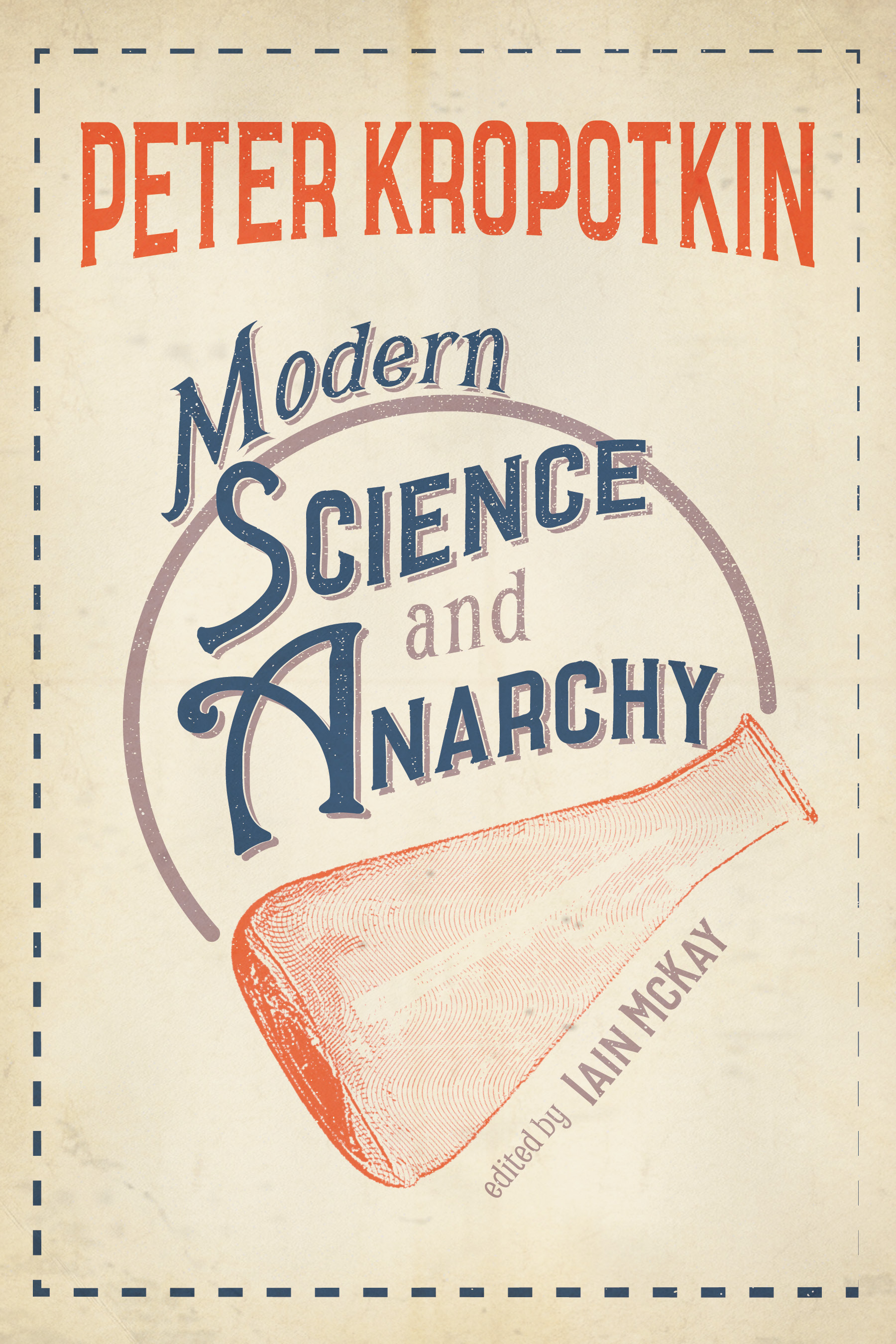
Science
and
Anarchy
Peter Kropotkin
Edited by Iain McKay

[T]he State, with its hierarchy of functionaries and the weight of its historical traditions, could only delay the dawning of a new society freed from monopolies and exploitation [] what means can the State provide to abolish this monopoly that the working class could not find in its own strength and groups? [] [W]hat advantages could the State provide for abolishing these same privileges? Could its governmental machine, developed for the creation and upholding of these privileges, now be used to abolish them? Would not the new function require new organs? And these new organs would they not have to be created by the workers themselves, in their unions, their federations, completely outside the State?
Peter Kropotkin
Peter Kropotkin (18421921) should be well known to most readers of this book. Born into a Russian royal family, he rejected his privileges to become an anarchist, a libertarian communist, struggling for the liberation of all from every shackle imposed upon the individual and society.
Modern Science and Anarchy ( La Science Moderne et LAnarchie ) was the last book by Kropotkin published during his lifetime. It marks the summation of forty years within the anarchist movement since he concluded that he was an anarchist after visiting Switzerland and joining the (First) International in 1872. Like his earliest books, such as Words of a Rebel and The Conquest of Bread , it is mostly made up of a series of articles originally published in anarchist newspapers (in this case, Les Temps Nouveaux ). The exception is the first section, Modern Science and Anarchy , which was initially written as a pamphlet in Russian (in 1901) before being serialised and later expanded in Les Temps Nouveaux (in 19023 a nd 1911) .
As well as being an excellent summary of anarchist ideas and history and a useful restatement of the anarchist analysis of the State, this work also reminds us that Kropotkins first love was science.
Modern Science and Anarchy is an ambitious work and covers a wide range of issues that are as relevant now as they were thenWhere does anarchism come from? How will we create it? Can we use the State to introduce socialism? Does human nature make anarchism impossible? Will libertarian communism limit the free development of the individual? What is the relation of anarchism to other political theories such as liberalism?and Kropotkin brings his usual clarity when answering these (and many other) questions.
It would be impossible to discuss all that Kropotkin addresses so here we sketch a few issues associated with his invocation of anarchy and science as well as correcting a few of the errors made in the work. We hope that these show how well the book has stood the test of time.
* * *
Any book with a title that includes the words Modern Science is almost certainly going to be dated by the time it is published. This is the case with Kropotkins work for the science he discusses reflects his research for the Recent Science column of The Nineteenth Century and so the situation in the ten years leading up to 1901 when the bulk of Part I, Modern Science and Anarchy , was first published. This raises an issue with Kropotkins invoking of science to justify anarchism as his comrade and friend Errico Malatesta suggested:
He affirmed himself in his conviction by maintaining that recent discoveries in all sciences, from astronomy to biology and sociology, concurred in demonstrating that Anarchy is the mode of organisation exacted by Natures laws. One might have objected to him that, whatever conclusions might be drawn from contemporary science, it was certain that if new discoveries would destroy the present scientific belief, he, Kropotkin, would have remained an Anarchist in the teeth of logic.
This is true, to an extent. Science, by its very nature, tends to upset conventional wisdomincluding that of science itself. What was once a well-established position can be overturned by new evidence and a better theory. If you proclaim anarchy as a science because of research made up to a certain point then the danger is, as Malatesta suggests, new developments will make a mockery of yo ur claims.
An obvious example of thisalthough one which is not entirely correct
The same applies to anarchism. To take an example closer to Kropotkin, namely the idea of group selection which was popular in biology for many decades after the Second World War and to which Kropotkin, falsely, was linked via Mutual Aid . For some, the tendency was to suggest that Kropotkins ideas were validated because science supported the notion that the unit of selection was the group. The rise of gene-level biology quickly undermined and replaced group selection theory and by the 1970s it had been placed, like so many other truths of science, in the history books (under what were we thinking?). If Kropotkin had advocated group selection, where would that have left his theories and his claims for the scientific validity of anarchy?
Luckily, such readings of Kropotkin were superficial Mutual Aid does not suggest a group selection theorybut the danger remains. This can be seen from Kropotkins support for Lamarckian soft inheritancethe idea that environmental factors promoted evolutionary change via a use or lose mechanism. He spent a considerable amount of time seeking to refute August Weismanns theories and time has shown that he was wrong. Weismann is now recognised as one of the most important evolutionary theorists of all time and the idea of the Weismann barrier is central to the modern evolutionary synthesis. It does not matter that Kropotkin was summarising a common perspective in scientific circles of the time, the fact is that thanks to the discoveries associated with genetics in the 1930s we know that soft inheritance is i ncorrect.
If Kropotkin had based his ideas on mutual aid or anarchism on this fact of science, what would that mean for his politics? Kropotkins Lamarckian tendencies (like Darwins own) are obviously dated in the light of modern genetics but they are not the basis for mutual aid. Indeed, if we can ignore the invocation of Lamarck we can easily see that Kropotkins real aim reflects the still on-going nature/nurture debate. In addition, Lamarckian theories do have a place in analysing the development of social institutions and culture. This is reflected in Kropotkins argument that while mutual aid represents an instinct, its expression varies considerably through human history. So while soft inheritance has been refuted, the discussion over nature and nurtur e remains.
Kropotkin was rightly worried that Weismanns arguments about heritability meant that an organism is unaffected by its environment. Yet genetic heritability, whether it is high or low, implies nothing about modifiability. This is deeply impacted by environment and so nature and nurture interact. The classic example is height which is strongly heritable (80 to 90 percent) but the average height can and does increase due to changes in diet. Similarly, intelligence (as measured by average IQ scores) is increasing across birth cohorts (for example, America saw an eighteen-point gain in average IQ from 1948 to 2002) and nurture plays its part (for example, adoption of a child from a poor family into a better-off one is associated with IQ gains of 12 to 18 points).
Font size:
Interval:
Bookmark:
Similar books «Modern Science and Anarchy»
Look at similar books to Modern Science and Anarchy. We have selected literature similar in name and meaning in the hope of providing readers with more options to find new, interesting, not yet read works.
Discussion, reviews of the book Modern Science and Anarchy and just readers' own opinions. Leave your comments, write what you think about the work, its meaning or the main characters. Specify what exactly you liked and what you didn't like, and why you think so.





